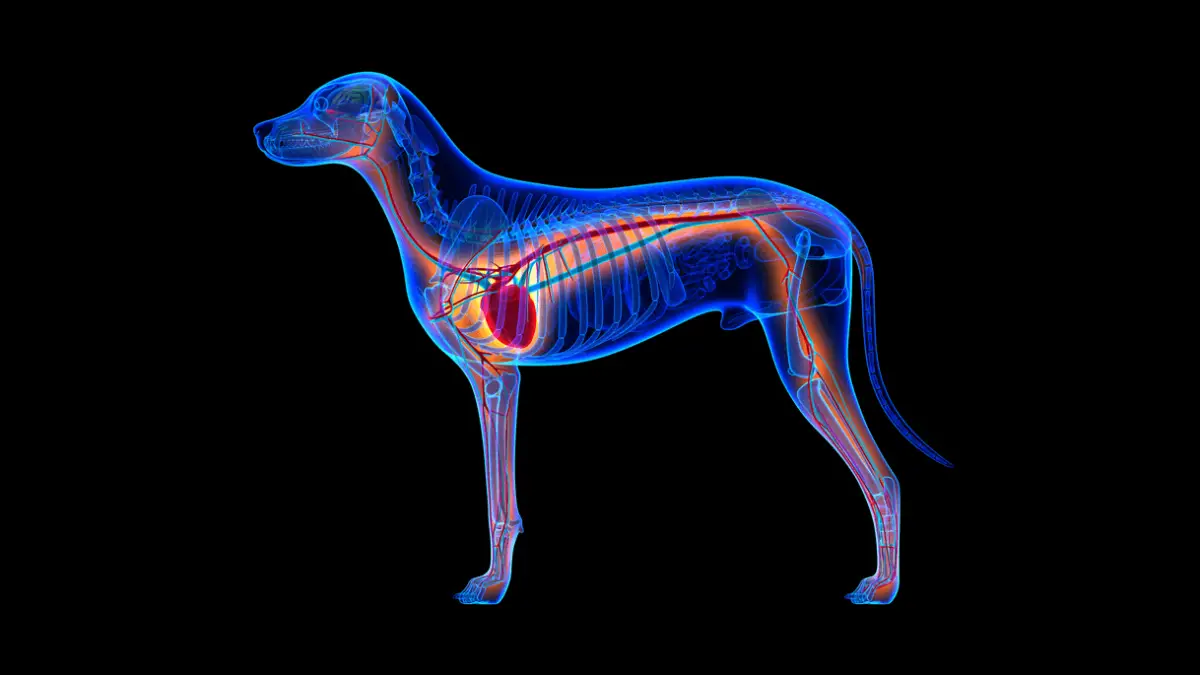How Dangerous It Is: Congestive Heart Failure in Dogs
29.09.2021.
As you can probably imagine, heart disease is always pretty dangerous. Like humans, dogs can get heart problems, and one of the potential issues they might face is congestive heart failure. If your dog got this diagnosis, you might be right to be very worried. This is not a small, easily curable issue that can be treated lightly. However, there are a few things dog owners and vets can do. Here’s what you should know about congestive heart failure in dogs.
What is congestive heart failure in dogs?
The easiest way to explain this disease is - the heart is unable to pump blood correctly. There are different kinds of congestive heart failure in dogs, and based on the exact kind, the vet will know how to determine the next steps. All kinds are pretty dangerous, but the dog might live a comfortable and happy life with early detection and treatment. Here are the two basic types of congestive heart failure in dogs;
Left-sided congestive heart failure (LS - CHF)
Left-sided congestive heart failure happens when the heart contracts and the blood from the left ventricle leaks through the mitral valve back into the left atrium. When it does that, the blood comes back into the dog’s lungs. The fluid will sip into the lung tissue, which can result in pulmonary edema. Left-sided congestive heart failure is more common in dogs.

Right-sided congestive heart failure (RS - CHF)
When a healthy heart contracts, the right ventricle should push the blood into the lungs for oxygenation. In right-sided congestive heart failure, some blood leaks through the tricuspid valve back into the right atrium. The blood will then back up into the dog’s main circulation and become congested. This type of CHF can cause peripheral edema (swelling in limbs).
What causes this disease?
The first thing we should know is that congestive heart failure is somewhat rare in dogs. It accounts for less than 5% of all dog heart disease cases. Different things can cause CHF in dogs. Some dogs are born with valvular insufficiency that will take some time to cause problems for dogs and develop into congestive heart failure. Some of the most common reasons dogs develop congestive heart failure are;
- Dilated cardiomyopathy - Enlarged heart
- Patent ductus arteriosus or PDA - Failure of a blood vessel to close at the time of birth
- Mitral valve insufficiency - “Leaky” valves
- Atrial septal defect - A whole in the heart
These reasons are congenital, which means dogs are born with one or more of these issues. However, they can steadily develop congestive heart failure as they grow. Here are some things that can contribute to developing it;
- Heartworms
- Parvovirus
- Hypothyroidism
- Food lacking in vitamin E and selenium
- Bacterial infections

What are the symptoms of congestive heart failure in dogs?
Many heart diseases in humans and dogs have similar symptoms. Congestive heart failure is one of them. It is most likely the dog will develop either pulmonary or peripheral edema, cough, and have trouble breathing. However, different respiratory diseases can cause similar symptoms and signs. Here are some of the most common congestive heart failure symptoms dog owners should look out for;
- Persistent coughing
- Troubled breathing
- Decreased stamina
- Fainting
- Fatigue
- Swollen belly
- Loss of appetite
- Gum or tongue discoloration (poor circulation)
- Difficulty settling down
- Crackling sound in lungs
- Increased heart rate
You must notice these signs as soon as possible, so the vet can start treating your dog and exploring the safest options.
How is congestive heart failure diagnosed?
As soon as you tell your vet some of these symptoms you noticed on your dog, they should immediately think it is a heart problem. Early detection is the key, so make sure you thoroughly describe all the symptoms you noticed and help your vet as much as you can. Luckily, there are a few tests vets will perform to make sure your dog has congestive heart failure. These tests are EKG (Electrocardiogram), echocardiogram (ultrasound), an x-ray of the chest, blood and urine tests. Plus, the vet will immediately check for heartworms.

When vets diagnose congestive heart failure in dogs, they have broken it down into four stages. That way, it is easier to determine the severity of the disease, how developed it is, and what are the clinical signs. There are four stages;
- Stage I - The disease is developing, but the heart is starting to deteriorate. There are no symptoms yet.
- Stage II - The disease is causing mild issues. The dog has slight breathing issues, fatigue, and shortness of breath, especially after exercise.
- Stage III - The disease is pretty developed. The dog is experiencing shortness of breath and fatigue more often and after mild exercise. The dog might start wheezing, coughing, and the fluid will begin to build up.
- Stage IV - Congestive heart failure reached its final stages. The dog has trouble breathing, and the fluid is causing severe swelling. The fluid buildup might cause vomiting.
Congestive heart failure treatment
This condition is not treatable. Dogs that are diagnosed with congestive heart failure will require life-long support and medication. However, if CHF developed as a result of some underlying condition, it might be resolved. For example, getting rid of heartworms will allow the dog’s heart to work much easier, but the damage might have already been done. Still, in some cases, surgery is an option, especially in cases of PDA. Some of the medication your dog might have to take are;
- ACE inhibitors - help reduce blood pressure and helps the heart pump easier. One of these medications is enalapril.
- Diuretics - they will make sure the dog’s kidneys get rid of excess fluids.
- Vasodilators - help relax blood vessels, thus reducing heart pressure
- Nutrition - this is not a medication, but dogs with congestive heart failure will have to adapt their diets to foods that contain vitamin E, selenium, vitamin B, taurine, coenzyme Q10, and carnitine.
World Dog Finder team







Share